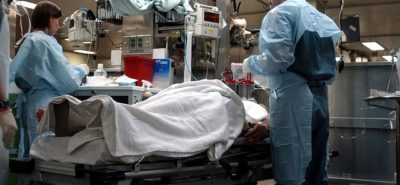Although ER doctors are often forced to make quick decisions about the care of their patients, there are no special legal protections in place for physicians in hospital emergency rooms when medical mistakes are made. Emergency medical situations can be very chaotic, but ER doctors and staff members can still be held liable for damages when sub-standard care causes harm to a patient.
An estimated 136 million patients visit hospital emergency rooms throughout the United States each year. Due to the mere nature of medical emergencies, the ER is a prime breeding ground for mistakes to be made. According to the American College of Emergency Physicians (ACEP), common causes of emergency room malpractice are:
- Diagnostic Errors: Recent studies revealed that injuries related to diagnostic errors were the top cause of emergency room related malpractice cases in the United States. An astounding 57 percent of malpractice claims involve some form of diagnostic error, including things like: failure to diagnose, providing the wrong diagnosis, and delay in diagnosis. The most common ailments that misdiagnosed victims suffer from include myocardial infarction, acute cerebral vascular accident, lung cancer, meningitis, spinal epidural abscess, pulmonary embolism, and appendicitis. Failing to provide an accurate and timely diagnosis for these conditions can cause existing conditions to worsen and new conditions to develop which can result in significant long-term or permanent health conditions and even death.
- Delayed Treatment: Time is of the essence in hospital emergencies. While treatment for some medical conditions can safely be delayed to enable doctors and other ER staff to handle more serious situations, other conditions require immediate medical intervention. As the number of emergency room patients continues to rise and staffing shortages plague the industry, however, patients who are in dire need of immediate care are sometimes forced to wait long periods of time before they are treated. Delays in treatment, according to ACEP, can result in worsening of injuries which could cause permanent damages or death. In cases where a victim with a critical condition is not treated right away, hospitals and staff members may be able to be held liable for the damages suffered.
- Medication Errors: In emergency medical situations, patients often arrive without current information about allergies, recent medications taken, or existing health conditions that could cause reactions or complications when certain medications are consumed. In these types of situations, hospital staff members are not typically able to be held liable for damages. In other cases, however, medication errors are made when incorrect doses are administered, necessary drugs are not given, the wrong drugs are given, or medications are given to the wrong patient. When these incidents occur, healthcare providers may be guilty of medical malpractice, and victims can often be awarded compensation for damages.
- Patient Dumping: The Emergency Medical Treatment and Active Labor Act (EMTALA) requires hospitals that receive Medicare funding to provide emergency medical care to patients regardless of their ability to pay. Although violations of the EMTALA can result in significant penalties and fines, and could even cause the loss of Medicare funding, patients are sometimes turned away when they are in critical need of emergency medical care. When”patient dumping” occurs, victims are often forced to travel extensive distances and treatment is often delayed for long periods of time. In many cases, medical conditions can worsen causing serious complications, permanent damages, or death. Hospitals are held liable in situations like these, and victims can receive compensation for damages that result from patient dumping.
- Unsanitary Conditions: In hospital emergency departments, constant patient flow means less time for properly sterilizing equipment and less time for rushed doctors and nurses to practice proper hand washing techniques. Since many patients who visit the ER have infectious diseases, viral illnesses, and lowered immune systems, the risk for cross contamination illnesses and infections due to exposure to unsanitary conditions is a major concern.
Who Can Be Held Liable for Malpractice in the ER?
Determining liability in emergency department malpractice cases can be very complicated. In some situations, only the healthcare provider can be held liable for medical mistakes, while in other cases, the hospital itself may also be responsible for damages. If a doctor is acting within the scope of his or her employment, the employing hospital can be held liable for negligent actions under the doctrine of “respondent superior”. As an example, when an ER doctor accidentally leaves a surgical tool inside a patient during surgery he or she is acting within the scope of employment duties and the hospital can be held liable for medical expenses, pain and suffering, the cost of medical equipment, lost wages and punitive damages. If the same ER doctor performs surgery while under the influence of drugs, however, and causes a medical mistake, the hospital can escape liability and the doctor is held liable for damages suffered.

